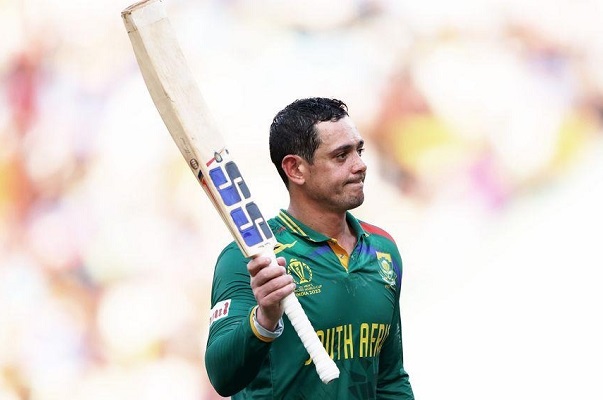Cricket betting, a topic of debate in many countries, carries a cloud of legality concerns. Did you know that while gambling is generally illegal in India, exceptions exist for games like lotteries and horse racing? This blog aims to shed light on the positive aspects of legalized cricket betting and how it could potentially address pressing issues such as corruption in cricket.
Dive into this read to understand why legalizing cricket betting may not be the devil’s game after all!
Understanding The Legal Landscape of Cricket Betting
- Legalizing cricket betting can help address corruption issues in the sport by establishing regulated platforms that ensure fairness, transparency, and responsible gambling practices.
- The benefits of legalizing the cricket betting industry include creating a safe and regulated environment for people to engage in gambling activities, generating revenue through taxation for public welfare programs, and combating criminal activities associated with illegal gambling.
- Various countries have implemented regulations and laws to govern cricket betting, including licensing requirements, taxation laws, measures to prevent illegal gambling, regulatory bodies, and frameworks, as well as the importance of international cooperation.
The legal landscape of cricket betting is complex and ever-evolving, with a growing demand for legalized betting in India due to its potential benefits, while illegal gambling activities continue to pose significant criminal risks.

Analysis of Growing Demand for Legalized Betting in India
More people in India want legal cricket betting. This demand is growing fast. Both sports fans and entrepreneurs see the value. Cricket is a beloved sport in India with its own rules and history.
Betting adds to the fun for some fans. Entrepreneurs see great market potential for online cricket betting here too. Yet, only three states allow it now: Goa, Daman, and Sikkim. Many believe it’s strange not to allow cricket betting when other forms of gambling like lotteries and horse races are already legal in India.
Criminal Activities Associated with Illegal Betting
Illegal betting on cricket has been associated with various criminal activities, posing significant risks to the integrity of the sport. Match-fixing is a major concern, where individuals involved in illegal betting manipulate the outcome of matches to benefit from their wagers.
This dishonest practice undermines fair play and sportsmanship, tarnishing the reputation of cricket as a game that values honesty and transparency. Additionally, illegal betting networks often operate without any regulation or oversight, creating opportunities for money laundering and organized crime involvement.

The lack of accountability and control allows these criminals to exploit vulnerable individuals and communities who may be enticed by promises of quick money but ultimately suffer financial loss or even become trapped in a cycle of gambling addiction.
Benefits of the Legalized Betting Industry
Legalizing the cricket betting industry can bring numerous benefits. Firstly, it can create a regulated and safe environment for people to engage in gambling activities. This ensures that individuals have access to legitimate platforms and are protected from scams and illegal operators.
Additionally, legalizing betting can generate significant revenue through taxation, which can be used for public welfare programs like education and healthcare. Furthermore, the legalization of betting can help combat criminal activities associated with illegal gambling by providing authorities with the means to monitor and investigate suspicious transactions.
Overall, legalizing the cricket betting industry promotes transparency, player protection, and responsible gambling practices while contributing to economic growth and development.
Global Regulations and Laws Governing Cricket Betting
Various countries have implemented regulations and laws to govern cricket betting, including licensing requirements, taxation laws, measures to prevent illegal gambling, regulatory bodies, and frameworks, as well as the importance of international cooperation.
Licensing Requirements
To ensure a safe and regulated cricket betting industry, licensing requirements play a crucial role. These requirements help establish legitimate platforms and protect players from fraudulent activities.
In India, where gambling is largely illegal, the licensing process becomes even more important. The licensing authorities determine who can operate legally in the market, ensuring that only trusted and reliable operators are allowed to offer their services.
This not only protects the interests of the bettors but also helps in preventing criminal activities associated with illegal gambling. By imposing strict licensing requirements, such as background checks and financial stability assessments, regulators can maintain a secure environment for cricket betting enthusiasts to enjoy their favorite sport responsibly.
Taxation Laws
Taxation laws play a significant role in the regulation and legalization of cricket betting. When it comes to legalizing and regulating this industry, it is crucial for governments to implement appropriate taxation laws.
Additionally, these laws can help generate revenue for the government and contribute to the overall development of society. In India, where cricket holds immense popularity, taxation laws surrounding cricket betting can ensure that operators pay their fair share of taxes while providing a safe and regulated platform for sports enthusiasts to engage in responsible gambling.
By imposing reasonable tax rates on licensed operators, governments can strike a balance between generating revenue and making cricket betting accessible to individuals from all walks of life.
Measures to Prevent Illegal Gambling
To prevent illegal gambling, various measures are in place. One method is to have strict licensing requirements for betting operators. This ensures that only legitimate and regulated platforms can offer cricket betting services.

Additionally, taxation laws are enforced to ensure that these operators contribute their fair share of taxes to the government. Alongside this, regulatory bodies and frameworks play a crucial role in overseeing the industry and ensuring compliance with regulations.
International cooperation is also important as it helps share information on corrupt activities across borders. These measures together help create a safe and secure environment for cricket betting while preventing illegal gambling networks from thriving.
Regulatory Bodies and Frameworks
To ensure the legality and transparency of cricket betting, regulatory bodies, and frameworks play a crucial role. These bodies, such as the International Cricket Council (ICC) and national gambling commissions, oversee and enforce regulations in the industry.
They set licensing requirements for operators, establish taxation laws, and implement measures to prevent illegal gambling activities. By regulating cricket betting, these bodies aim to protect players and sports integrity while ensuring fair competition.
International cooperation is also important in addressing cross-border issues related to betting on cricket matches.
Importance of International Cooperation
International cooperation plays a crucial role in addressing the issue of illegal cricket betting and maintaining the integrity of the sport. By working together, countries can share information and strategies to combat corruption and match-fixing.

This collaboration also enables regulatory bodies to create consistent regulations and standards for legalized cricket betting across borders. International cooperation is essential in creating a fair and transparent environment for cricket betting, protecting players, preventing criminal activities, and ensuring that the benefits of legal gambling are maximized globally.
Country-Specific Analysis of Cricket Betting Legality
Cricket betting legality varies from country to country. In India, gambling is generally illegal, but there are three states where it is allowed: Goa, Daman, and Sikkim. Entrepreneurs in India recognize the high market potential of online cricket betting and are pushing for its legalization nationwide.
The clamor for legalization stems from the argument that it is unfair to allow other forms of gambling like lotteries and horse racing while prohibiting cricket betting. By legalizing cricket betting, proponents believe it can help address corruption issues and illegal practices associated with the sport.
Countries like India have specific regulations in place to combat corruption, such as the Sports Betting Integrity Unit (SBIU), which collects information about both legal and corrupt practices to maintain fairness in cricket.
In other countries like Australia and England, cricket betting is largely legalized and regulated by authorities. These countries have licensing requirements for operators to ensure a safe and secure environment for bettors.
Taxation laws also apply to these operations, contributing revenue that benefits society as a whole.
Overall, different countries have different approaches when it comes to the legality of cricket betting. While some restrict or prohibit it altogether due to concerns over criminal activities and public perception, others realize its economic potential when properly regulated.
Overcoming Challenges and Controversies Surrounding Betting Laws
Cricket betting laws face challenges and controversies, but through measures against match-fixing, fairness, transparency, and combating illegal gambling networks, the industry is evolving positively.
Combatting Match-Fixing and Corruption
Match-fixing and corruption pose significant threats to the integrity of cricket. Illegal betting networks often fuel these illicit activities, undermining the fairness and spirit of the sport.
To combat this, various measures have been implemented. The establishment of regulatory bodies like the Sports Betting Integrity Unit (SBIU) allows for the collection of information on legal and corrupt betting practices to identify suspicious activities.
Additionally, educating players and officials about the consequences of involvement in match-fixing helps raise awareness and deter them from engaging in such dishonorable behavior.
Ensuring Fairness and Transparency
To ensure fairness and transparency in cricket betting, it is crucial to implement strict regulations and measures. This includes closely monitoring betting activities, investigating any suspicious behavior, and penalizing those involved in match-fixing or corruption.
The Sports Betting Integrity Unit (SBIU) plays a vital role in collecting information about both legal and corrupt betting practices to combat corruption effectively. By creating a safe and secure environment for cricket betting, we can protect the integrity of the sport while providing opportunities for sports enthusiasts to engage responsibly in this form of entertainment.

Combating Illegal Gambling Networks
Illegal gambling networks pose a significant challenge in the cricket betting industry. These networks operate outside the legal framework and often engage in criminal activities such as match-fixing and corruption.
To combat these illegal networks, regulatory bodies, and law enforcement agencies need to work together closely. This collaboration allows for the collection of information about both legal and corrupt betting practices to identify potential threats to the integrity of the sport.
Measures like constant monitoring, surveillance, and intelligence gathering are essential in identifying illegal gambling activities. Regulatory bodies can also establish strong partnerships with international organizations to exchange information and coordinate efforts on a global scale.
Player Protection and Responsible Gambling Measures
To ensure the safety and well-being of players, as well as promote responsible gambling, various measures are implemented in the cricket betting industry. These measures aim to protect players from potential harm and minimize the risk of gambling addiction.
For instance, legitimate cricket betting platforms have strict age verification processes in place to prevent minors from participating. Moreover, responsible gambling initiatives provide resources such as helplines and support services for individuals who may be struggling with gambling-related issues.
By prioritizing player protection and responsible gambling practices, the cricket betting industry strives to create a safe and enjoyable experience for all participants.
Future Prospects and Potential Changes in Cricket Betting Regulations
The future of cricket betting regulations looks promising, with potential changes on the horizon. As more countries recognize the benefits of legalized and regulated betting, there is a growing momentum towards embracing this industry.
This shift could lead to a safer and more transparent environment for both bettors and the sport itself.
One potential change in cricket betting regulations is the expansion of licensed platforms. Currently, only a few states in India allow gambling, but there is a push to legalize it nationwide.

If successful, this move would open up opportunities for legitimate operators to enter the market and provide safe and secure platforms for cricket enthusiasts.
Another potential change involves strengthening measures against corruption and match-fixing. By implementing stricter laws and penalties for those involved in such activities, authorities can protect the integrity of the sport.
Additionally, increased collaboration between regulatory bodies and international organizations can help combat illegal gambling networks that tarnish cricket’s reputation.
Overall, these potential changes aim to create a positive environment where responsible gambling practices are encouraged while ensuring fairness in cricket matches. By embracing legalized betting with effective regulations, we can safeguard the sport’s future while providing an enjoyable experience for fans around the world.
Conclusion
In conclusion, legalizing cricket betting has the potential to bring positive changes to the sport. It can help combat corruption and illegal gambling activities, while also ensuring fairness and transparency.

By implementing responsible gambling measures and regulations, cricket betting can become a safe and secure form of entertainment for sports enthusiasts. The benefits of regulated cricket betting outweigh the risks, making it a promising prospect for the future of the sport.
FAQs
Q: What is the Public Gambling Act?
A: The Public Gambling Act is a law that outlines rules for games of chance, including cricket betting.
Q: Can cricket betting have a positive impact?
A: Yes, legal and regulated cricket betting can have many benefits like creating safer options for responsible gambling in cricket.
Q: Is all cricket betting viewed as criminal activity?
A: No! If done right by following the gambling laws, it’s not seen as criminal but rather part of the code of sportsmanship and enjoyment of the game.
Q: How does legalizing cricket betting help poor people?
A: When done legally and in a controlled way, profits from cricket betting can bring income to help poor people improve their lives.
Q: Why do some hold positive attitudes towards cricket betting?
A: Many see advantages such as making matches more exciting, adding an extra level to understanding the game, or simply the fun aspect when done responsibly.
